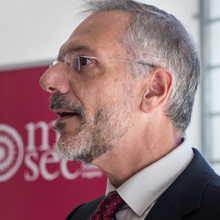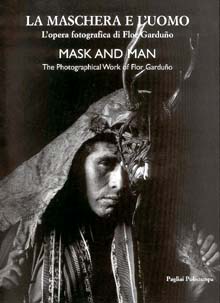Ricerca Veloce
Ricerca Avanzata

Francesco Paolo Campione
Francesco Paolo Campione (1964) insegna Antropologia
culturale all’Università degli Studi dell’Insubria (Como e Varese, dal 2001) ed
è direttore del Museo delle Culture di Lugano dal 2005. Si è sempre occupato di
antropologia dell’arte, di museologia e di gestione di organizzazioni che
operano in campo culturale, alternando le attività di ricerca con
l’insegnamento accademico e la direzione d’istituti culturali e musei.
Fra i suoi maggiori scritti riguardanti l’Esotismo e il Primitivismo nell’arte
moderna ricordiamo i volumi La maschera e l’uomo / Mask and Man. L’opera fotografica di
Flor Garduño (Pagliai Polistampa, 1999), Ethnopassion.
La collezione d’arte etnica di Peggy Guggenheim (Mazzotta, 2008), Serge Brignoni. 1902-2002. Artista e
collezionista. Il viaggio silenzioso (Silvana, 2013), Kandinsky. L’artista come sciamano (Giunti, 2014), Jamini Roy. From Tradition to Modernity. The
Kumar Collection (Silvana, 2015), La
Scuola di Yokohama. La fotografia nel Giappone dell’Ottocento (Giunti, 2015
/ Billedkunstkolernes forlag, 2016), Je
suis l’autre. Giacometti, Picasso e gli altri. Il Primitivismo nella scultura
del Novecento (Electa, 2018), Novecento
primitivo (Electa, 2019).
Francesco Paolo Campione (b. 1964) teaches Cultural
Anthropology at the University of Insubria (Como, Italy, since 2001) and he is
the Director of the Museo delle Culture (Lugano, Switzerland, since 2005).
For thirty years he has worked within the fields of the Anthropology of Art,
the Museum Studies, and the Management of Cultural Organizations, alternating
his researches with the academic activities and the direction of cultural
institutions and museums. He has conducted field works in Bali and Laos. He has
been the curator of more than eighty permanent and temporary art exhibitions in
different countries. He has published 16 monographs, 20 art catalogues and more
than 110 essays and articles on scientific journals and in volumes edited by
other authors.
Operating in the management of cultural organizations, he has conceived and
experimented modern systems based on middle and long-term planning, on the
organic interaction with the territories and on the development of
international nets to share and to promote different activities. He also worked
as a consultant to institutions and local governments in Italy and Switzerland.
Libri a cura di Francesco Paolo Campione
La maschera e l’uomo
- € 13,17
- € 15,49
